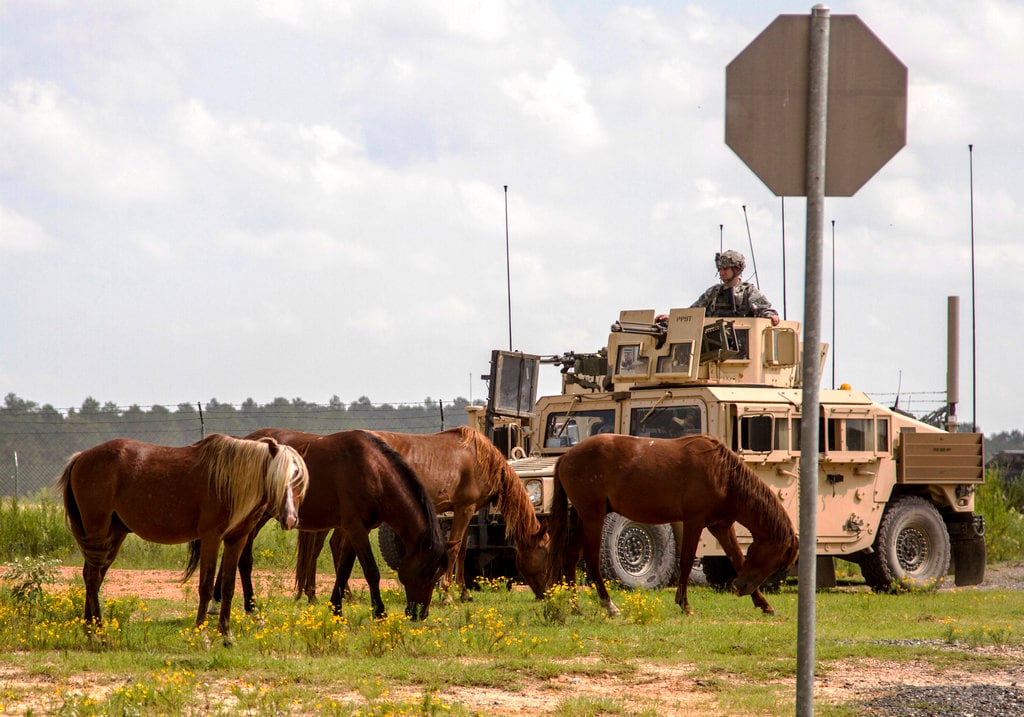FORT POLK, La. — As a legal battle wages over the wild horse population at Fort Polk, rescue groups are working to secure a future for the horses that have been removed from the military post.
Fort Polk officials announced in 2016 that they would begin rounding up 750 “trespass horses” in groups, handing them over to animal welfare groups and people who expressed interest in the animals.
A federal court determined the horses were “trespass livestock,” meaning the Wild Free Roaming Horses and Burros Protection Act of 1971 didn’t apply to them.
Lisa Alexander, who works with one of the welfare groups that accepted 18 horses in November, said the process has been “heartbreaking” but that she is motivated to save the animals from kill shelters.
“The requirements to be able to accept the animals are pretty strict. You have to be able to take all of the horses at one time, but we have no idea how many that will be exactly until possibly just a few days before they are ready for pickup,” Alexander said.
“We make it work though, because we know that we are the best chance that these horses have at getting through this process alive.”
Alexander said that what happens to the horses after the initial placement is the most crucial part of the process. She said people and groups who are less experienced with wild horses sometimes try to adopt an animal and then realize they’re not capable of caring for it long term.
“That’s when these horses are most likely to end up in a kill shelter — because their original adopter failed them,” she said.
Alexander said she has worked with wild horses for decades. In 2014, she and her husband took groups of wild horses from Utah to Alaska, where they were reintroduced to the wild. She said that knowing how to handle wild horses takes years of training and a lot of support.
“We have an entire team that works together to help all of these horses,” she said. “It is not something that just one person could accomplish.”
Alexander said that other area rescue groups have offered to help with the horses she accepts after roundups. Swany Creek Ranch outside of Leesville has taken on several horses, and she said a group known as Outlaw Ministries has offered to accept some for one a therapy program for military veterans.
Since the military announced its plan to adopt out the horses, animal rights advocates have called for a reconsideration of the decision. One group in Vernon Parish, the Pegasus Equine Guardian Association, has demonstrated support for a lawsuit filed against Fort Polk by the Tulane Environmental Law Clinic.
The Pegasus group alleges that the horses being corralled on the post are being treated inhumanely, and president Amy Hanchey said she hopes future roundups will be halted until a better plan for the horses can be determined.
“There are close to 400,000 plus acres that are not owned or managed by the army, on USFS managed lands, that these migratory heritage animals could be relocated to and protected from exploitation,” Hanchey said in a news release.
A hearing on the matter will be Jan. 30 in federal court in Lake Charles.
Information from: American Press, http://www.americanpress.com




